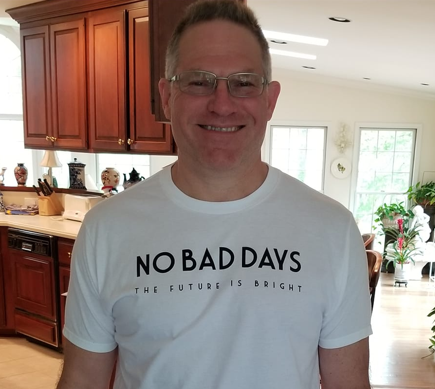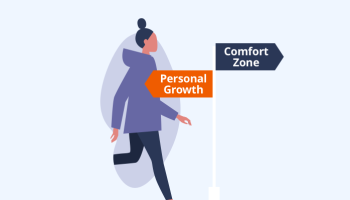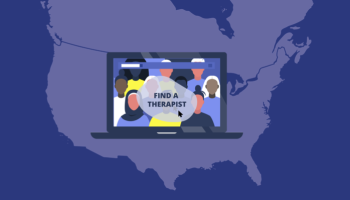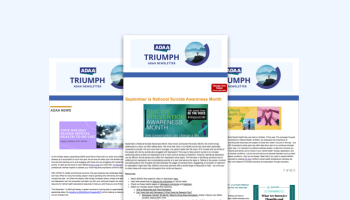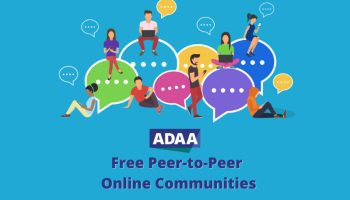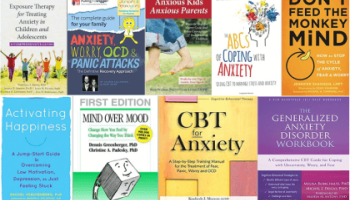Back-to-School Anxiety: How to Prepare Your Child and Embrace the Unknown
Back-to-School Anxiety: How to Prepare Your Child and Embrace the Unknown

As soon as the beach towels disappear and the school supplies take over the seasonal section at Target, you know what time it is back-to-school season. Whether you're feeling secretly thrilled or filled with dread, one thing becomes clear: transitions are coming, and for many kids (and parents), so is back-to-school anxiety.
This post will guide you through how to support your child during this transition, not by eliminating anxiety, but by preparing them and helping them build confidence in facing the unknown. You’ll learn how to:
- Balance practical back-to-school preparations with emotional readiness
- Involve your child in age-appropriate planning
- Support anxiety without accidentally reinforcing it
- Teach resilience and self-regulation with tools like the DBT PLEASE skill
- Practice tolerating uncertainty through gradual exposure and encouragement
Why Back-to-School Transitions Trigger Anxiety
Back-to-school is a major time of change: new schedules, new teachers, maybe even a new school building or classmates. For kids who struggle with anxiety, these uncertainties can feel overwhelming. And when a parent is anxious too, the tendency to try and control every variable grows.
The instinct to smooth every bump in the road is completely understandable. But research and real-life experience show that doing so often makes anxiety worse in the long run. When kids aren’t given the chance to handle small doses of uncertainty or challenge, they miss the opportunity to build confidence and coping skills.
So, what can we do instead?
Step 1: Involve Kids in Back-to-School Prep
Practical planning can ease some anxiety, but how you do it matters. Instead of doing everything for your child, guide them to take an active role. That builds independence and helps them practice problem-solving in a supported way.
Here are a few ideas:
- Schedules: Rather than printing their school schedule for them, encourage your child to log into the school portal and print it out themselves.
- School Supplies: Make back-to-school shopping a collaborative activity. Let your child choose supplies and check items off the list.
- Lunch Plans: Ask them to think through their lunch routine. Will they buy lunch or pack from home? What would make a good weekly lunch menu?
These small tasks help kids feel ownership and capability, even if they’re feeling nervous underneath.
Step 2: Build Emotional Readiness with the DBT PLEASE Skill
School success isn’t just about supplies and schedules; it’s also about emotional regulation. One helpful tool is the DBT PLEASE skill, which reminds us how physical habits impact emotional health. Teach your child to check in with these areas:
- Treat PhysicaL Illness
- Balancing Eating
- Avoiding mood-altering substances
- Balancing Sleep
- Getting Exercise
As the summer winds down, help your child gradually shift sleep and eating routines to match the school schedule. These changes can feel small, but they make a big impact on their emotional well-being.
Step 3: Support Without Over-Accommodating Anxiety
This is the heart of the back-to-school anxiety dilemma: how do we show support without accidentally feeding the anxiety? The key is to validate feelings while showing confidence in your child’s ability to cope.
Here’s an example of what that sounds like:
“I know this feels really hard right now, and I also know you can handle it.”
This kind of supportive statement (a concept from SPACE treatment) sends a dual message: your child’s emotions are real, and you believe in their strength.
It’s also helpful to:
- Normalize uncertainty: “It's understandable to feel nervous about starting a new school.”
- Model tolerance of discomfort: “Some parts of school might be tricky and uncomfortable, and you are going to figure out how to cope."
- Avoid over-reassurance: Instead of “It’ll be great!” try “It might be a mix of fun and challenge, and you’ll find your way.”
Step 4: Practice Facing the Unknown
One of the best ways to help kids manage anxiety is exposure, letting them experience small, manageable doses of the things they fear.
That might look like:
- Going to school-hosted playground meetups to practice talking to new peers
- Role-playing how to introduce themselves to a teacher or classmate
- Walking the school route or doing a “practice run” of the morning routine
Be cautious about making too many pre-arranged plans (like meeting every classmate before school starts), which can create false certainty and discourage your child from learning they can handle unknowns as they arise.
If your child asks to avoid or leave a situation due to anxiety, consider what’s driving that request. Are they seeking comfort—or avoiding discomfort? Use that as a cue to teach coping skills like:
- Naming the anxious feeling
- “Riding the wave” of discomfort with mindfulness
- Challenging worried thoughts with reality checks
- Making a plan for how to face the situation
- Praising bravery and effort—not just results
Trust the Process (and Your Kid)
The beginning of a new school year brings so many emotions; excitement, nervousness, joy, fear. That’s normal. And the goal isn’t to avoid all discomfort, it’s to help our kids learn how to face it, feel it, and move through it.
Sometimes the best thing we can do as parents is to step back, let go just a little, and trust that our children are capable of growing through challenge.
Let’s help them step into the unknown; not with the promise that everything will be perfect, but with the confidence that they can figure things out along the way.
What about you?
- What’s one way you’re helping your child prepare for school this year, without taking over?
- When have you seen your child handle uncertainty better than you expected?
Want more support for parenting through life’s seasonal shifts?
Drs. Hughes and McGovern, two psychologist moms, are launching Oversubscribed, a free newsletter for working parents. Sign up here: https://hudsonrivertherapy.com/oversubscribed










